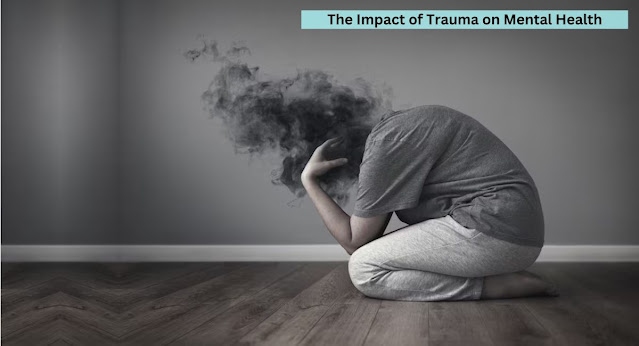Understanding Psychosis: Causes, Symptoms, And Treatment Options
The mental illness known as psychosis is characterized by a disconnection from reality. Psychosis patients may find it challenging to discern between what is genuine and what is not. Different symptoms of this disease, including hallucinations, delusions, disordered thinking, and emotional disorders, might appear.
Understanding the Causes
Numerous underlying factors may contribute to psychosis. While the particular cause is not always known, a number of circumstances are frequently linked to the onset of psychosis.
Genetic Factors
According to research, genetic factors significantly influence the likelihood of getting psychosis. A higher risk of developing psychosis exists for people with a family history of psychotic illnesses, such as schizophrenia symptoms.
Brain Chemistry Imbalance
Psychosis may begin as a result of an imbalance in neurotransmitters, the brain's chemical messengers. The neurotransmitter dopamine, which regulates mood and perception, may have a special role in psychotic symptoms.
Substance Abuse
The use of some drugs, such as cannabis or hallucinogens, can cause psychosis or intensify pre-existing symptoms of the condition. Although substance-induced psychosis is frequently transient, it can be upsetting and calls for treatment.
Environmental Factors
Trauma, social isolation, and stressful life events are examples of environmental variables that might have an effect on mental health and perhaps lead to psychosis in those who are vulnerable. Additionally, a marginally increased risk of having psychosis has been linked to growing up in an urban setting.
Recognizing the Symptoms
It is essential to recognise the signs of psychosis in order to intervene quickly and effectively. The following symptoms might be an indicator of psychosis:
Hallucinations
Perceptual experiences known as hallucinations occur when there is no corresponding exterior stimulus. Examples of common sorts include hearing voices or observing things that only you can see.
Delusions
Delusions are false beliefs that endure in the face of opposing facts or evidence. Psychotic people may have paranoid, egotistical, or persecutory delusions.
Disorganized Thinking
Disorganized thinking is characterized by difficulties in organizing thoughts and expressing them coherently. Speech may become fragmented, making conversations challenging to follow.
Emotional Disturbances
Psychosis can have an emotional influence, resulting in erratic mood changes, severe anxiety, despair, or anger.
Diagnosing Psychosis
The existence of psychosis and its underlying causes are often assessed by medical and psychiatric evaluations.
Medical Evaluation
To rule out any medical illnesses or substance usage that could be causing the symptoms, a physical examination, laboratory testing, and imaging examinations might be carried out.
Psychiatric Assessment
Psychiatrists or mental health professionals conduct interviews and assessments to evaluate the individual’s symptoms, history, and mental state. They consider criteria outlined in diagnostic manuals, such as the DSM-5, to diagnose the specific type of psychosis.
Treatment Approaches
Psychosis is a treatable condition, and several approaches can effectively manage its symptoms and improve the individual’s quality of life.
Medication
Antipsychotic drugs are frequently recommended to lessen or get rid of psychotic symptoms. These drugs balance the activity of neurotransmitters in the brain. To choose the best drug and dose, it is essential to consult with a medical expert closely.
Therapy and Counseling
People with psychosis can benefit from psychotherapy, such as cognitive-behavioral therapy (CBT), which can help them question and alter incorrect thoughts and beliefs. Additionally, counselling sessions can help with the development of coping mechanisms and emotional support.
Self-Help Strategies
Engaging in self-help strategies can complement professional treatment. These strategies include stress reduction techniques, maintaining a regular sleep schedule, engaging in enjoyable activities, and avoiding substances that can worsen symptoms.
Supporting Someone with Psychosis
Support from family and friends is crucial for people who are suffering from psychosis. Here are some ways to provide support:
Educate Yourself
Support from family and friends is crucial for people who are suffering from psychosis. Here are some ways to provide support:
Offer Emotional Support
Listen actively and empathetically to your loved one’s experiences and emotions. Offer reassurance and understanding, showing that you are there to support them through their journey.
Encourage Treatment Adherence
Help your loved one stay consistent with their treatment plan, including medication management, therapy sessions, and attending support groups. Remind them of the benefits and support them in any necessary adjustments.
Foster a Supportive Environment
Support from family and friends is crucial for people who are suffering from psychosis. Here are some ways to provide support:
Promoting Recovery and Well-being
Recovery from psychosis is possible, and promoting overall mental well-being is crucial for long-term stability. Here are some approaches that contribute to recovery:
Medication Management
Continuing medication as prescribed and attending regular follow-ups with healthcare professionals is essential to manage symptoms effectively.
Psychosocial Rehabilitation
Psychosocial rehabilitation programs provide comprehensive support, including vocational training, social skills development, and assistance in regaining independence in daily life activities.
Conclusion: Psychosis is a complex mental health condition that requires understanding, support, and appropriate treatment. By recognizing the causes, symptoms, and available treatment options, we can foster an environment of compassion and aid in the recovery and well-being of individuals affected by psychosis.


Comments
Post a Comment